What is Brooding?
Brooding in poultry farming is the provision of an optimum environment for birds in the early part of their life by the application of an external heat source. This is usually from day-old until the chicks are able to regulate their body temperature efficiently.
Providing warmth and comfort to the chicks is important because, in the earlier part of their life, they lose heat more quickly due to higher metabolic rate, body size, and their lack of feathers. Also, at this young stage, their immune system, digestive system, and thermoregulatory system are not completely activated, making them more susceptible to diseases and infections.
Therefore, to ensure proper growth, a better immune system, and good feather cover, brooding in poultry farming is important as it determines if the chicks will live long enough to bring optimum profit to the farmer.
Types of Brooding in Poultry Farming
Brooding in poultry can be natural or artificial
- Natural Brooding
- Artificial Brooding
In natural brooding, a broody hen provides all the warmth required by the chicks, right after hatching up to about 3 or 4 weeks of age. This is usually used on household farms where only a few chickens are raised each year.
Artificial brooding in poultry, on the other hand, is done by means of a temperature-controlled brooder. This type of brooding allows for temperature regulation and for a large number of chicks to be reared in the absence of broody hens.
Brooding Equipment
Equipment used for artificial brooding is called brooders and is composed of three elements;
- The heating source (electric, gas, kerosene, charcoal, etc.)
- Reflectors (concentrates the heat emanating from the heating source)
- Brooder guard
Electric Brooder is thermostatically-controlled and is capable of spreading heat uniformly above a large area. It prevents chicks from crowding under the heater or brooder directly.
There are also infrared bulb heater and brooding lamps. Gas brooders, on the other hand, utilize natural gas or methane and are connected to a heating element-hanged above the floor of the brooding pen.
A brooder guard is used as a fence to keep chicks near a heat source. It is usually made of hard plastic material and can form a circle or ring or folded to make corners. The number of chicks stocked in a brooder guard could be about 100 or more depending on the size. A brooder guard is often required for floor-reared birds.
Brooding Environment
- Temperature
- Relative Humidity
- Ventilation
- Lighting
Temperature
The brooding temperature should be less than the body temperature because the birds feel uncomfortable and show drowsiness and panting when the environmental temperature is at or higher than their body temperature. Hence, temperature control is the most critical factor during brooding because the ability of the bird to regulate its temperature in an effective manner will directly affect its ability to grow proficiently.
Check the chick’s behaviour to ensure they are getting adequate heat. If they huddle under hover or near the source of heat, there is inadequate heat, and when they move far from the source of heat, there is excessive heat. But when they evenly spread, it means there is adequate heat and when all the chicks huddle to one side, then it shows there is a drought. This indicates the need for expansion of space as your chicks grow older and increase in body size.
The ideal temperatures vary according to individual flock requirements. About 32.3 – 38°C is ideal for chicks in the first four days. Then it decreases as they grow older. It is important to always monitor the chicks and make appropriate adjustments. It is important to have a room thermometer inside the brooding pen or house to monitor the ambient temperature inside the brooding house.
Relative Humidity
The ideal relative humidity to maintain during brooding is between 50-65 percent. High relative humidity may cause wet litter which results in high ammonia levels inside the brooding house, causing Coccidiosis. While low relative humidity may cause respiratory problems. The only way to solve or reduce air quality problems once they have occurred is to adjust the ventilation of the brooding pen very early in the morning.
Ventilation
Good environmental control during brooding in poultry farming requires properly executing the minimum ventilation basics. Never heat the house at the cost of ventilation. Use minimum ventilation during brooding. The ventilation of the brooder house is restricted to 1-2 weeks.
Lighting
Light stimulation encourages feed and water consumption in chicks and thus helps them grow and perform better. Provide adequate lighting for your birds.
Brooding Management
Brooding Area and Litter Management
Feeding and Drinking
Health and Disease Prevention
Brooding Area and Litter Management
Clean and disinfect brooding area for 1 or 2 weeks before the arrival of flocks. Provide fresh, dry, and comfortable bedding conditions for the chicks. Check the fittings, temperature control, feed, and water trough arrangement before bringing in the chicks into the brooding area. Avoid a damp brooding area. Use a deep litter system. Discourage litter eating by the chicks and remove caked litter as soon as after the birds leave.
Feeding and Drinking
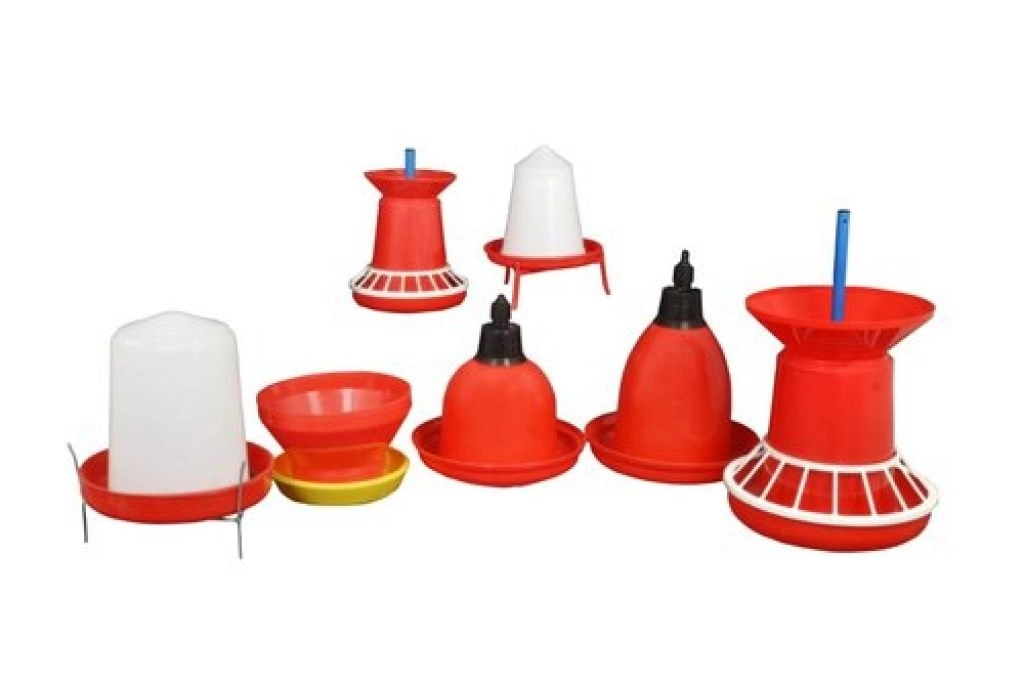
Both feed and water availability are of equal importance, and proper nutrition is essential for better growth and production. Feed your broiler starter mash from day-old until about 3 or 4 weeks before switching to grower mash and your cockerels and layers chick mash. For the first four days of brooding, the chicks are supplied feed in shallow feeders or thick sheets of papers.
Also, the chicks must be provided with fresh, clean, and cool water of optimum quality with temperature similar to room temperature. Pay close attention to initial drinker height, and make adjustments that reflect bird growth on a routine basis. Make sure every chick gets to feed and water quickly and easily.
From the first day of brooding, ensure chicks are feeding well to maintain uniformity to achieve maximum output.
Health and Disease Prevention
Although young birds are fragile and can get sick very easily, many diseases can be prevented by keeping your poultry house very clean.
Diseases such as E.coli Infection, Newcastle Disease, Aspergillosis, Coccidiosis, among others, affect birds at an early age and are caused by nutrient deficiency or by bacteria and viruses. Even overcrowding can also cause diseases in birds.
To prevent diseases and maintain the health of your flock, it is necessary to vaccinate chick against various diseases. Also, ensure you adhere to critical biosecurity measures during and after the brooding period.
Examine chicks one after the other for signs of defects before placing them under the brooder. Remove all dead chicks from the flock to prevent cannibalism and possible infection by pathogenic organisms. Also, the drinker should be taken out and washed thoroughly before being filled with clean cool water. Avoid overcrowding and daily inspect the condition of birds and their faces for any sort of abnormality. Carry out debeaking and deworming of birds, and follow a regular vaccination schedule.
In summary, providing chicks with comfort and warmth is an important aspect of poultry production. Brooding in poultry farming should be done with the right equipment and following important management practices. Also, always keep in touch with your veterinarian for help at the time of need.

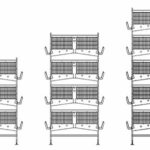


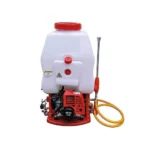
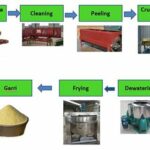
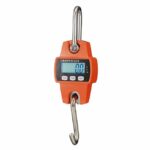
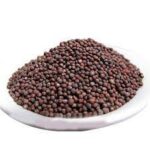





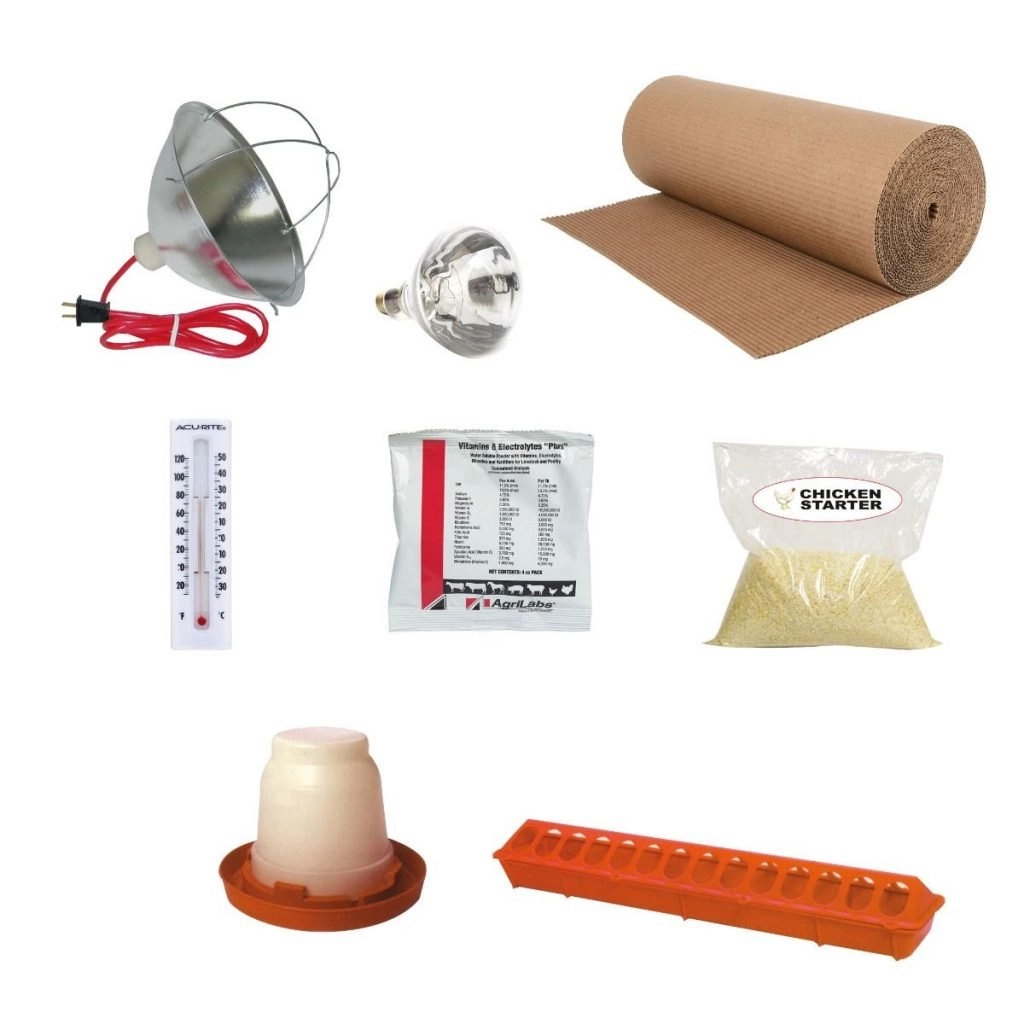
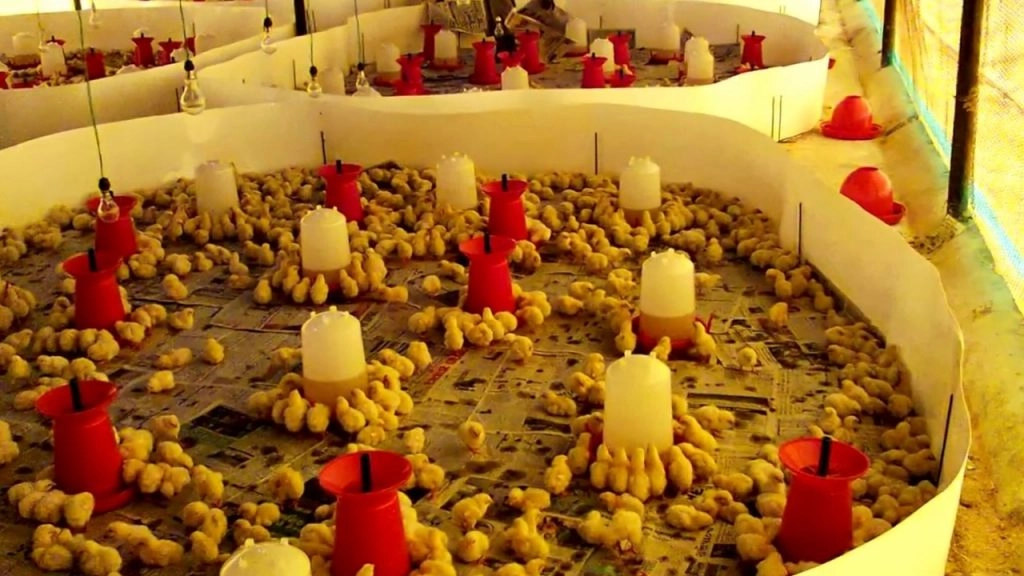

13 thoughts on “Brooding In Poultry Farming: What You Need and 4 Factors You Should Consider”
Thank you so much
Hello Sijuwo
Thank you for the feedback
Register to join the online training on poultry farming for beginners as we discuss everything you need to know about rearing poultry from buying day-old chicks to egg production in the case of layers or meat production in the case of broilers.
Date: 31st July – 1st August 2020
Registration fee: N10,000
Kindly send your proof of payment to [email protected] to register.
For enquiries, contact us at: (+234) 809 409 1115
Thank you for choosing Afrimash
Thank you very much, pls I’ll appreciate if you can send me the vaccination schedule and the right drugs to administer , thank you
Dear Henry,
Thank you for the feedback
As regards your enquiry, Afrimash offers vaccination schedule to farmers via their email once their order for day-old chicks is processed via our website
To place an order for day-old chicks and also get vaccination schedule, kindly click the link below to book for birds of your choice
https://afrimash.com/vendors/chicks-hub/
Thank you for choosing Afrimash
Ok
Awesome and very educative.
Hello Fatai,
Thank you for the feedback
Register to join the online training on poultry farming for beginners as we discuss everything you need to know about rearing poultry from buying day-old chicks to egg production in the case of layers or meat production in the case of broilers.
Date: 31st July – 1st August 2020
Registration fee: N10,000
Kindly send your proof of payment to [email protected] to register.
For enquiries, contact us at: (+234) 809 409 1115
Thank you for choosing Afrimash
I have really benefited from this, thank you for the information. I was into small scale poultry farming, but I stopped due to the fact that I was encountering loses at 3-4 weeks resulting in low income. But with this, I think I will give it a trial.
Hello Charity,
Thank you for the feedback
As regards your previous experience on poultry farming, we would recommend you attend out Poultry for Beginners Training, coming up tomorrow, 31st of July to 1st of August, 2020. .
Training Outline:
Sourcing For The Right Chicks
Brooding Your Chicks
Housing Facilities & Equipment
Feeds & Feeding Methods
Common Diseases In Chicks
Important Farm Practices
Bonus:
– One month mentorship after training
– Access To Vaccination Schedule
– Discount On Some Poultry Equipment
To join the training platform today, payment should be made to:
Bank Name: UBA Plc
Account name: AFRIMASH COMPANY LIMITED
Account Number: 2129087920
Send your proof of payment to [email protected] and you will receive a mail for confirmation of payment
We look forward to having you on the training
For enquiries, contact us at: (+234) 809 409 1115
Ok
I need the costs of ur brooding & rearing equipment for 10,000broilers now, how, where I can get the products when I pay
Thanks.
Hello Asubiojo,
Thank you for reaching out to us.
As regards your enquiry, kindly click the link below for the prices of our poultry equipment:
https://afrimash.com/product-category/agricultural-equipment/poultry-equipment/
For details on how and where to get your products, read about our delivery options and pickup points nationwide.
Also, we’d like to prepare a proforma invoice for you with details on the cost of shipping the equipments to your location. Kindly contact us via any of the channels below so we can offer you a more personalized service:
Call: (+234) 809 409 1115
WhatsApp: (234) 808 280 8271
Email: [email protected]
Thank you for choosing Afrimash
I really enjoyed reading this blog post. It was very informative and I learned a lot. I especially liked the section on brooding. I have been brooding my chicks for the last few days and it has been really fun. I